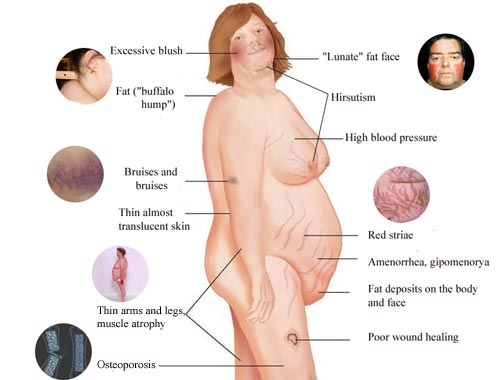Cushing's Syndrome
Cushing's syndrome occurs when your body is exposed to high levels of the hormone cortisol for a long time. The most common cause of Cushing's syndrome, sometimes called hypercortisolism, is the use of oral corticosteroid medication. The condition can also occur when your body makes too much cortisol. Too much cortisol can produce some of the hallmark signs of Cushing's syndrome - a fatty hump between your shoulders, a rounded face, and pink or purple stretch marks on your skin. Cushing's syndrome can also result in high blood pressure, bone loss and, on occasion, diabetes. Treatments for Cushing's syndrome can return your body's cortisol production to normal and noticeably improve your symptoms. The earlier treatment begins, the better your chances for recovery.
